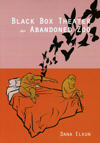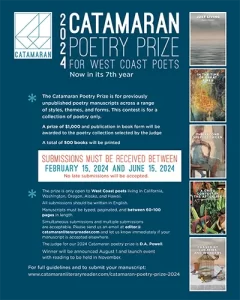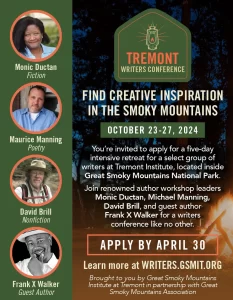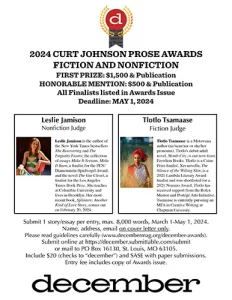Black Box Theater as Abandoned Zoo
Winner of the 2008 Concrete Wolf Chapbook Competition, Dana Elkun’s Black Box Theater as Abandoned Zoo offers a guided tour of a rich, imagined landscape. The cover of the volume features a pair of monkeys, perched on a bed, releasing butterfly silhouettes into the air. Underneath the enigmatic cover art, 15 sophisticated yet accessible poems treat topics as varied as marriage, medicine, and history.
Winner of the 2008 Concrete Wolf Chapbook Competition, Dana Elkun’s Black Box Theater as Abandoned Zoo offers a guided tour of a rich, imagined landscape. The cover of the volume features a pair of monkeys, perched on a bed, releasing butterfly silhouettes into the air. Underneath the enigmatic cover art, 15 sophisticated yet accessible poems treat topics as varied as marriage, medicine, and history.
In early works, including “The Essence of the Owl,” Elkun endeavors to orient readers to the world she has constructed, while simultaneously inviting them to collaborate in the making of meaning:
His shoes are blue, right? Bravo! We are envisioning
the same man. Such a relief
so early on. Now the challenge for us
is to discover the essence of the owl.
The convivial tone combined with an expectation of work (or “challenge”) is characteristic of Elkun. And use of the first person plural – as well as the second person elsewhere – although potentially off-putting in poetry, works for her. She never forces her vision upon her audience. Instead, she takes the role of docent, helping those in her care to appreciate invented wonders, as in the chapbook’s title poem, where the speaker requests, “As we begin our tour, / please keep your voices low.” Following Elkun’s lead, readers are shown rousing visions, including a blackbird that dwells within an iris; a mascot on fire inside a burning school; and “hummingbirds, pleading at the window pane.”
Elkun’s alignment of theaters and zoos signals an interest in form that carries throughout Black Box Theater. Both institutions typically consist of spaces filled with delights that are, at the same time, constrictive. Elkun clearly has in mind the Italian for room (“stanza”), as she evokes a similar tension in her sequencing, juxtaposing poems with regular stanzas (“Less You,” “Intake With Empress Earl Gray”) alongside poems without them (“Long Marriage,” “Bang”). She also presents several compelling series that vigorously explore possibilities in empty spaces between lines. “Pack of Lies” is one such poem:
I tend to hoard my food.
I tend to my beauty as much as a flapper would.
In that picture of my ancestors on the altar, the shortest man resembles me.
The picture of Adella does not remind me of me.
I will not name my daughter after Adella.
The extra spaces here draw attention to the distance between artistic invention and outright prevarication. In addition, they invite questions about intention and execution. Another of Elkun’s poems engages in a comparable experiment with what’s not there: the numbered series “Epic,” which starts at “0” and runs to “13,” skipping altogether seven of the anticipated sections.
While Black Box Theater displays structural innovation and a warm sense of playfulness, it does include a conspicuous formal tick. Several of Elkun’s poems, like “Less You” and “New Love,” begin with epigraphs speaking of medical conditions, from exchopraxia to micropsia. Ostensibly the invocation of these conditions is to help us appreciate unconventional ways of seeing. Yet the device feels forced, and Elkun could in most cases have done without it. Look, for instance, at the beginning of “Unavailable Memory,” which includes as its epigraph “Retrograde amnesia: partial or total inability to recall information.” The poem then opens with these lines, which – when coupled with the title – do a great deal to get us thinking about lost knowledge: “A turtle falls into a mineshaft / and becomes the newest crown / on the oldest totem pole.” I suspect this minor fault results from Elkun’s earnestness as a guide. And when taken in relation to the whole, the epigraphs do little to distract from the many pleasures to be found in Black Box Theater.
Elkun creates the powerful closure of a curtain dropping with her final poem, “Ending Time.” It describes the felling of the “original banyan,” which is traditionally associated with the Hindu god Shiva. Even as the ancient tree comes to an end, “full of grace” as it falls “headfirst,” other trees remain, still growing and “snarling.” The poet thus evokes a sense of possibility as she brings up the house lights and returns us to our world. After finishing Black Box Theater as Abandoned Zoo, I want an encore.





